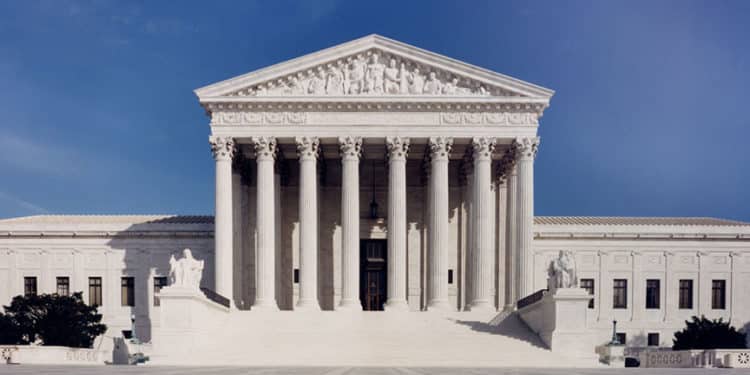On December 6, the U.S. Supreme Court heard arguments in a False Claims Act (FCA) whistleblower case. The case, United States, ex rel. Polansky v. Executive Health Resources, Inc., concerns the Department of Justice’s (DOJ) ability to dismiss qui tam whistleblower cases in which it did not initially intervene.
Under the FCA, a whistleblower may file a qui tam lawsuit against a fraudster on behalf of the U.S. government. The DOJ then has the opportunity to intervene in the case and either litigate it itself or dismiss the suit. If the DOJ elects not to intervene, then the whistleblower can proceed with the qui tam suit on their own.
The Polanksy case raises the issue of whether the DOJ can move to dismiss a case after not intervening in it. In 2012, Jesse Polansky alleged that Executive Health Resources was falsely certifying inpatient hospital admissions as medically necessary, leading to the overbilling of Medicare. The DOJ chose not intervene in the case and Polansky pursued the qui tam suit without government intervention. In 2019, however, the DOJ moved to dismiss the case. Polanksy appealed this dismissal.
At the Supreme Court hearing, Polansky’s attorney argued that the DOJ lacks the statutory authority to dismiss a case it did not initially intervene in. Attorneys for the government and Executive Health argued the opposite.
“All of the Justices’ questioning at oral argument appear to be deferential to the government’s position that the DOJ can dismiss a case that it did not initially intervene in,” said whistleblower attorney David Colapinto, a founding partner at the qui tam firm Kohn, Kohn & Colapinto. “However, the Court is struggling with what standard, if any, should be applied by courts at a hearing on the government’s motion to dismiss a whistleblower’s False Claims Act suit, years after the government has declined to intervene in the case.”
“During the oral argument the government took the position that it’s just ‘too bad’ if the whistleblower has spent ‘a ton of money’ and years litigating the False Claims Act suit. That was brushed off as a reasonable risk that every whistleblower takes when filing suit,” continued Colapinto, who has represented FCA whistleblowers since the 1980s. “This turns the False Claims Act statute on its head. Congress created the right of a whistleblower to bring these suits without the government to protect the taxpayers.”
“If the Supreme Court is prepared to extend the government’s right to intervene to permit it to dismiss a whistleblower’s False Claims Act qui tam case for virtually any reason under the sun, then Congress will have to fix the statute to create reasonable limits respecting the right of the whistleblower to proceed with the action if the government declines to intervene,” Colapinto concluded.
In recent years, the overall amount of recoveries collected by qui tam whistleblower suits have been in sharp decline, a fact many whistleblower advocates attribute to the DOJ’s tendency to unfairly dismiss strong whistleblower cases. At the same time, however, qui tam recoveries in DOJ-declined whistleblower cases have been on the rise. In Fiscal Year 2021, the U.S. government recovered $479 million from qui tam cases that the DOJ did not intervene in.
Senator Chuck Grassley (R-IA) proposed amendments to the False Claims Act in 2021 that would strengthen protections for whistleblowers and clarify existing law. The amendment was widely supported by whistleblower organizations and advocates. However, WNN sources discovered that the pharmaceutical lobby intervened with the amendment’s passage. The National Whistleblower Center is urging Congress to protect the False Claims Act: learn more here.
Further Reading:
United States, ex rel. Polansky v. Executive Health Resources, Inc. – Oral Arguments
Supreme Court to Review DOJ’s Authority to Dismiss False Claims Act Whistleblower Suits


